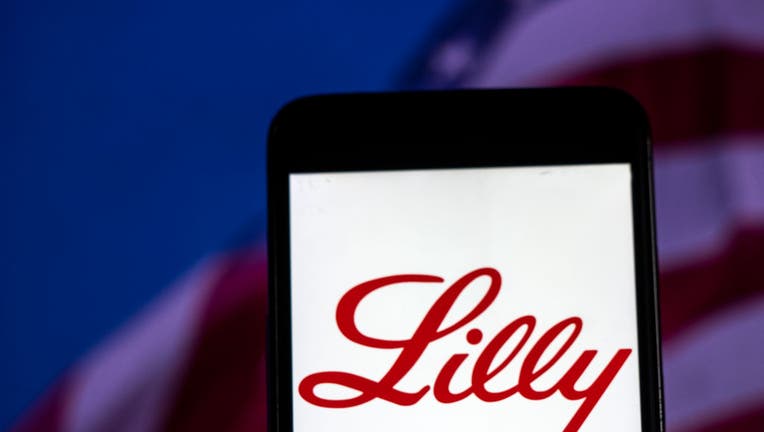FDA authorizes emergency use of Eli Lilly monoclonal antibody therapy to treat COVID-19

FILE - In this photo illustration, the Eli Lilly and Company logo is seen displayed on a smartphone.
LOS ANGELES - The U.S. Food and Drug Administration issued an emergency use authorization for Eli Lilly and Company’s monoclonal antibody therapy bamlanivimab to treat mild-to-moderate cases of COVID-19, according to a news release.
“Monoclonal antibodies are used to treat many diseases, including some types of cancer. To make a monoclonal antibody, researchers first have to identify the right antigen to attack. Finding the right antigens for cancer cells is not always easy, and so far mAbs have proven to be more useful against some cancers than others,” according to the American Cancer Society.
Monoclonal antibodies are laboratory-made proteins that mimic the immune system’s ability to fight off harmful antigens such as viruses.
RELATED: FDA approves Gilead's remdesivir, first drug for treating COVID-19
Bamlanivimab, which is manufactured by Eli Lilly and Company, has been authorized for use in patients with positive results of direct COVID-19 testing who are 12 years old and older, weigh at least 88 pounds and are at high risk for progressing to severe COVID-19 or potential hospitalization, according to the FDA.
The emergency use authorization also includes those who are 65 years of age or older, or who have certain chronic medical conditions.
Bamlanivimab specifically fights against the spike protein of SARS-CoV-2, and is designed to block the virus’ attachment and entry into human cells.
The therapy and its effectiveness at treating COVID-19 is still under investigation, but clinical trials of the therapy have shown evidence that the drug reduces COVID-19-related hospitalizations or emergency room visits in patients who are at high risk for disease progression within 28 days after treatment.
The therapy is not safe to use on patients who are already hospitalized with COVID-19 or require oxygen therapy due to the virus, the FDA noted.
“As illustrated by today’s action, the FDA remains committed to expediting the development and availability of potential COVID-19 treatments and providing sick patients timely access to new therapies where appropriate, while at the same time supporting research to further evaluate whether they are safe and effective,” said FDA Commissioner Dr. Stephen M. Hahn. “Through our Coronavirus Treatment Acceleration Program, the FDA continues to work around the clock and use every tool at our disposal toward these efforts.”
“The FDA’s emergency authorization of bamlanivimab provides health care professionals on the frontline of this pandemic with another potential tool in treating COVID-19 patients,” said Dr. Patrizia Cavazzoni, acting director of the FDA’s Center for Drug Evaluation and Research. “We will continue to evaluate new data on the safety and efficacy of bamlanivimab as they become available.”
The FDA made its decision to issue a emergency use authorization for bamlanivimab after a “review of the totality of the scientific evidence available,” according to the agency.
An interim analysis from a phase two randomized, double-blind, placebo-controlled clinical trial in 465 non-hospitalized adults with mild-to-moderate COVID-19 symptoms was observed to determine whether or not to authorize emergency use of the drug, according to the FDA.
Of the patients, 101 received a 700-milligram dose of bamlanivimab, 107 received a 2,800-milligram dose, 101 received a 7,000-milligram dose and 156 received a placebo within three days of obtaining the clinical sample for the first positive SARS-CoV-2 viral test, according to the FDA.
The FDA said most patients, including those receiving placebo, cleared the virus by day 11.
RELATED: Pfizer says early data signals COVID-19 vaccine is 90% effective
“However, the most important evidence that bamlanivimab may be effective came from the predefined secondary endpoint of COVID-19-related hospitalizations or emergency room visits within 28 days after treatment,” the FDA stated.
“For patients at high risk for disease progression, hospitalizations and emergency room visits occurred in 3% of bamlanivimab-treated patients on average compared to 10% in placebo-treated patients. The effects on viral load and on reduction in hospitalizations and ER visits, and on safety, were similar in patients receiving any of the three bamlanivimab doses,” according to the FDA.
The emergency use authorization will allow bamlanivimab to be distributed to health care providers, patients and caregivers.


